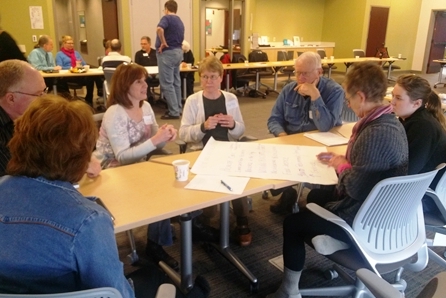Social Justice Overview
Should the church be involved in social justice?
At Second Unitarian, we believe that social justice work is the heart of our church.
Unitarian Universalism has a history of social justice work. Our civil rights history goes back to the time of the Unitarian Transcendentalists with Ralph Waldo Emerson and Henry David Thoreau, but you might be more familiar with UU involvement in the 1950’s and 1960’s Civil Rights movement. UUs showed up, even in the face of great danger and even death. Tragically, Unitarian Universalist minister, James Reeb who participated in the civil rights demonstration in Selma, died March 11, 1965 following a severe beating by a white mob.
Two weeks later, UU Viola Liuzzo was fatally hit by shots fired from a pursuing car containing Ku Klux Klan members. Viola, was one of the many UU volunteers who heeded the call of Martin Luther King Jr and traveled from Detroit, Michigan, to Selma, Alabama, in the wake of Bloody Sunday.
Our work isn’t done. UUs still show up. Our congregation takes steps every day to live our faith and build a better, more compassionate world.
What is social justice?
We define social justice in our church’s identity statement:
“At Second Unitarian our social justice identity is grounded in Unitarian Universalism which asks us to value all people, be ethical, work for equality, and respect the earth. We are optimistic, engaged and willing to take risks. We are willing to be public, to stand with those who are discriminated against, and engage with others as we build a community that works for all. We seek relationships, speak and gather with others, are aware of our community and have a conscience that compels us to act to make a difference in our world.”
— Second Unitarian Social Justice Identity Statement
And it’s about so much more than just being online social justice warriors. Unitarian Universalism has a legacy of “deeds not creeds” — we take action to create a more loving, just world. Through the power of love and working together, we strive to break down divisions, heal isolation, and honor the interconnection of all life and all justice issues.
What social justice issues are important to us?
Here are some of the issues that we’re passionate about. Which of these issues are most important to you? Click on them to learn how to get involved.
Our justice initiatives focus on these key priorities:
- Lesbian, gay, bisexual, transgender, and queer (LGBTQIA2S+) justice with a special emphasis on transgender youth through our OATS program.
- Recreating community through Omaha Together One Community (OTOC)
- Care for the environment including through our Community Garden, composting, and planting trees.
- Racial justice including Black Lives Matter and supporting community organizations.
- Immigration and Refugee Family Assistance.
In addition to our key priorities listed above, our efforts also include:
- Protecting reproductive rights, including the right to abortions.
- Fighting for living wages.
- Standing up for the public school system.
- Advocating for voting rights to provide all persons with free and fair access to the voting process.
- Sharing our offering with community organizations focused on homelessness, immigrant justice, civil rights, food security, affordable housing, and other justice initiatives.
Are you ready to join us?
If you’re looking for a social justice church near you, come check us out. Our work is led by our Social Justice Committee. Contact justice@2uomaha.org with your questions.

